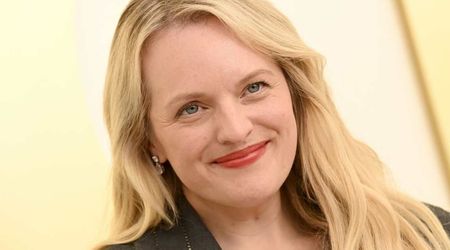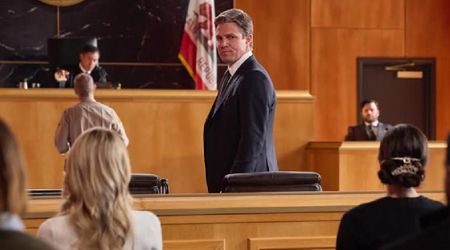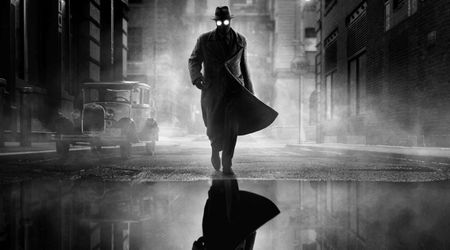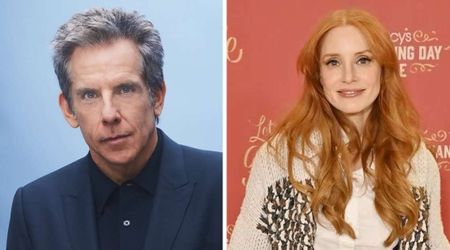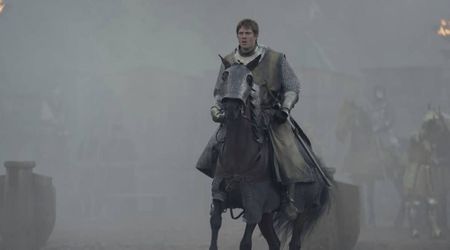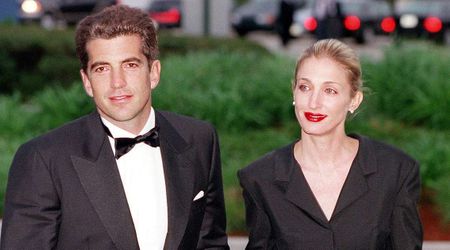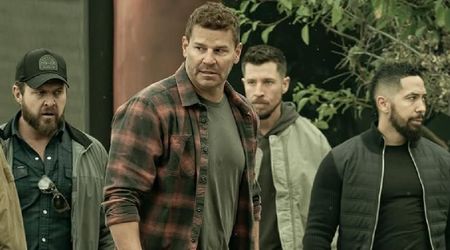'Undercover' Season 2: From terrorist without cause to annoying teen daughter, 4 overused tropes that doom show

Spoilers for ‘Undercover’ Season 2
For a formulaic crime thriller series, the second season of ‘Undercover’ is not half-bad. But the story does itself a whole lot of injustice by stretching itself thin over ten episodes. When you have that many hours to cover, stories run out and you have to introduce plot twists left, right, and center to keep things interesting till you reach the final showdown. But the plot twists are not the show’s biggest flaw.
The Belgian-Dutch series, supposedly inspired by a series of real-life events (at least in season 1), follows two undercover agents as they infiltrate drug kingpin Ferry Bouman's (Frank Lammers) operation in Limburg, the Belgian province bordering the Netherlands. The infiltration is executed by two agents, Bob Lemmens (Tom Waes) and Kim de Rooij (Anna Drijver).
Season 2 of the show takes place almost a year after the events of season 1. Kim, who now works for a human rights NGO, starts an investigation into illegal arms trade in Syria. This leads her to the El Dorado Ranch, a horse riding ranch in the Belgian countryside run by two brothers -- Laurent (Wim Willaert) and Jean-Pierre Berger (Sebastien Dewaele).
Kim’s nosing around does not go unnoticed. And the Berger brothers have her killed. Bob, after that, goes undercover again. But this time, he has vengeance on his mind as well. So, we see Bob do what he did in season 1 all over again. Set up a character, find convenient ways to make himself look favorable to the villains to gain their trust, the whole nine yards. And while that in itself is not the greatest, it could have been salvaged had it not been for the choicest tropes this show uses and abuses. Let’s take a look at some of them:
The macho anti-hero
Bob’s character is exactly that. He is unstable (thanks to Kim’s murder). He has a temper. He does illegal things that all seem to have an eerie “ends justify the means” vibe -- not a historically good vibe if anyone needs reminders. Bob embodies all characteristics of macho masculinity -- he’s strong and silent. He’s stoic. He puts himself in danger’s way without care for consequences. And like the quintessential anti-hero, he also seems to get away with almost anything. There are rarely any consequences (which probably fuels the lack of care for them).
Terrorists without a cause
This show sees the Berger brothers deal with a number of organizations across the world. Be it Syrian, Venezuelan, or Sudanese organizations (of some kind, they all seem to be buying rocket launchers, Kalashnikovs, armored vehicles and helicopters like they would buy wholesale giant consignments of toilet paper at Costco. So, there is a clear idea that these organizations are big and they are not legal and they have massive plans. But with the exception of the Venezuelan one (and even that’s mostly vague), we really don’t know what they are. We are just supposed to take it at face value that they are all some kind of terror organizations with deep pockets.
These organizations only seem to exist to bolster the stature of Jean-Pierre as a dealer. Although how he exists as one without being on an Interpol database is unclear (and it’s likely that the show’s writers had no explanation for it at all). But they sell arms to Syria (to whom, we can’t ask), and to Sudan (on both sides, but both sides of what remains an elusive question), and to a narcos trafficker in Venezuela who wants to attack the army (my, my). So they are definitely legit.
The “Gayngster”
There are many tropes at play when Jean-Pierre is concerned. He is the “Gayngster” -- a portmanteau of gay and gangster. He is also the straight gay, a man who betrays no campy stereotypical gay “afflictions” of any kind. And he is also somewhat the “armored closet gay” character as well. He is strong, silent, and dangerous. He is very touchy about his personal life (which does not seem to exist in the present). He gets angry at the mere mention of his former lover (who betrayed him ten years ago, perhaps marking the end of his personal life). And he overcompensates. But as far as tropes go, these are certainly not the worst ones that exist.
The bratty teenage daughter
This is Bob’s daughter Polly (Emma Verlinden). She is constantly sullen. She doesn’t understand why her father who infiltrates criminal organizations for a living can’t give her good explanations for the bad things that happen. And in an attempt to find out more, she actually walks into a steel trap that endangers the family further. This is a character designed specifically for the audience to hate. Because the show makes no effort to progress Bob’s arc through her, let alone give her an arc.
‘Undercover’ Season 2 is available on Netflix.

